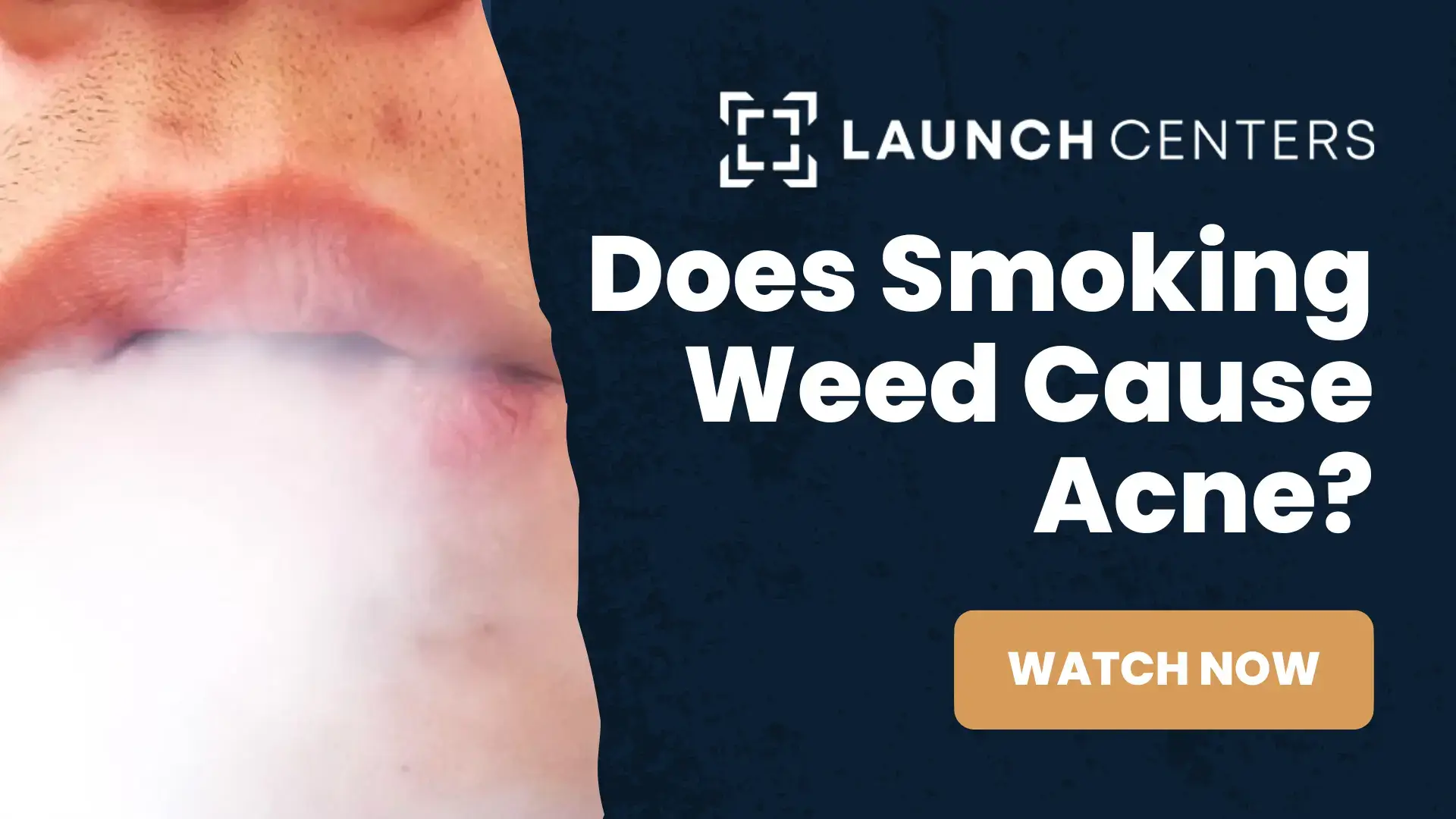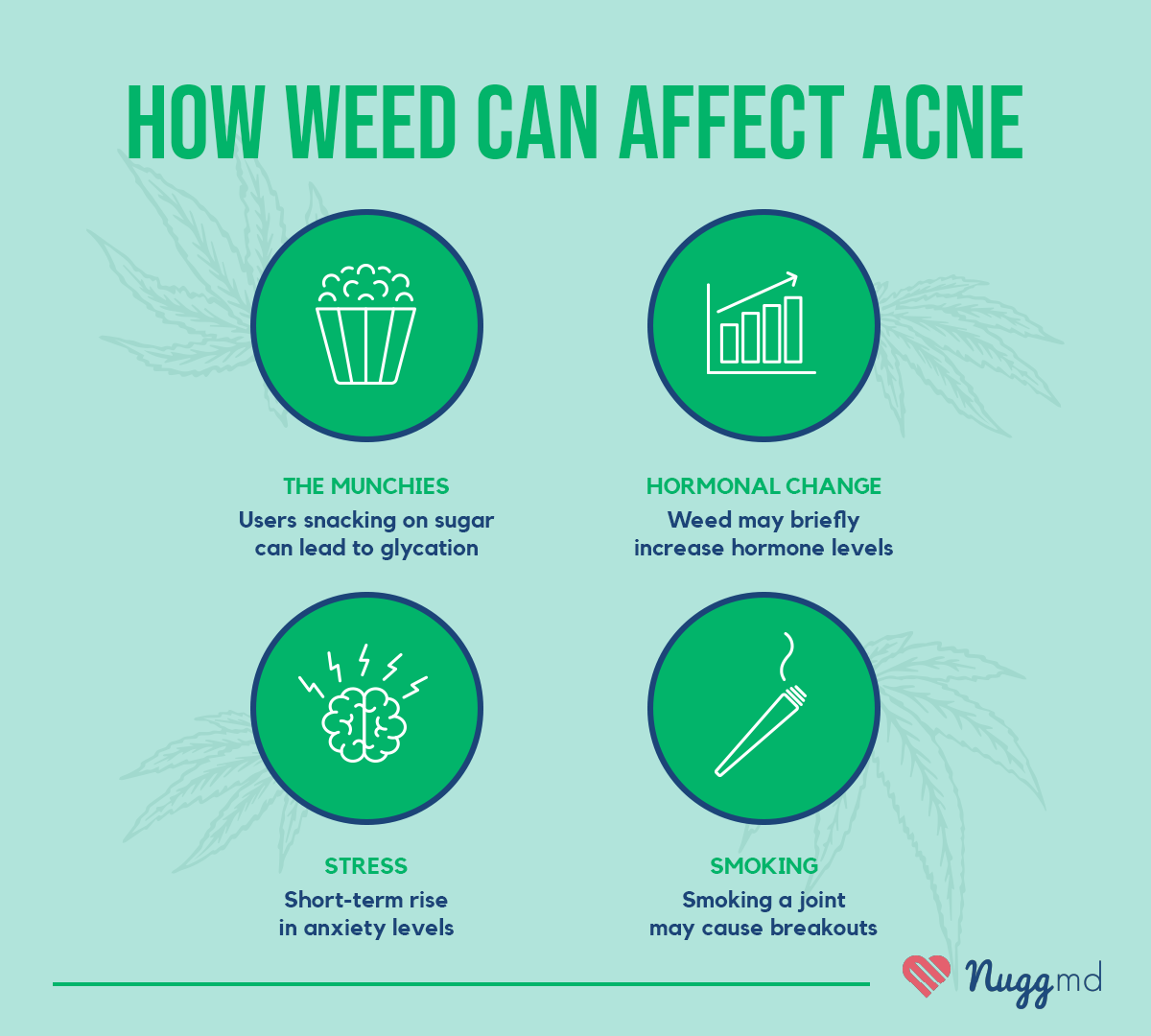Does Weed Gives You Acne?
Quick Answer: Smoking weed doesn’t directly cause acne, but it can contribute to breakouts through indirect effects such as hormone changes, lifestyle habits, and skin-damaging behaviors.

Does Weed Cause Acne? The Complete Guide to Cannabis and Skin Health
Outline
-
Introduction – Why this question matters
-
What is Acne? (medical background)
-
What Causes Acne? (factors like hormones, diet, inflammation)
-
Cannabis & The Body – Endocannabinoid system explained
-
Can Weed Cause Acne? – Direct and indirect evidence
-
Smoking vs. Edibles vs. Vaping – Impact on skin health
-
THC, CBD, and Hormones – Their role in acne development
-
Inflammation, Immunity, and Skin Response
-
Weed, Sleep, Stress & Skin Breakouts
-
Lifestyle Habits Linked with Cannabis That May Affect Skin
-
Does CBD Help Acne Instead? – Opposite side of the debate
-
Scientific Studies & Evidence – What we know so far
-
Dermatologist Opinions – What experts say
-
Weed & Skincare Products – Cannabis-based topicals
-
Preventing Breakouts if You Use Weed
-
Weed and Acne: Myths vs Facts
-
Weed and Long-Term Skin Health
-
FAQs (short answers for SEO)
-
Conclusion – Balanced perspective
does weed give you acne

Does Weed Cause Acne? The Complete Guide to Cannabis and Skin Health
Introduction – Why This Question Matters
Acne is one of the most common skin conditions worldwide, affecting teenagers, young adults, and even older individuals. At the same time, cannabis use is rising globally—both recreationally and medicinally. With millions of people consuming weed in different forms, a key question often arises: does weed cause acne?
The answer isn’t simple. Cannabis doesn’t directly cause acne in the same way bacteria or clogged pores do, but it may influence certain factors like hormones, inflammation, sleep, and lifestyle choices that affect the skin. On the other hand, some cannabis compounds, like CBD, may actually have anti-inflammatory properties that help acne.
In this article, we’ll explore the complex relationship between weed and acne, drawing from medical research, dermatology insights, and lifestyle analysis. Whether you’re a casual smoker, a daily user, or just curious about the connection, this guide gives you everything you need to know.
What is Acne? (Medical Background)
To understand if weed plays a role in acne, we first need to understand what acne actually is.
Acne vulgaris is a chronic inflammatory skin condition that occurs when hair follicles become clogged with oil (sebum), dead skin cells, and sometimes bacteria. The most common forms include:
-
Whiteheads – closed clogged pores
-
Blackheads – open clogged pores
-
Papules – small red, inflamed bumps
-
Pustules – pus-filled pimples
-
Nodules & Cysts – deep, painful, and sometimes scarring
Acne is influenced by several biological and environmental factors, making it a multifactorial condition.
What Causes Acne?
The major causes of acne are well-documented:
-
Excess Sebum Production
-
Hormonal changes, especially during puberty or stress, increase oil production in the sebaceous glands.
-
-
Clogged Hair Follicles
-
Dead skin cells and sebum combine to block pores, creating an environment where acne develops.
-
-
Bacterial Growth (Cutibacterium acnes)
-
Bacteria that normally live on the skin can multiply inside clogged pores, causing inflammation.
-
-
Hormonal Fluctuations
-
Testosterone and other androgens can make sebaceous glands overactive, a major driver of acne.
-
-
Inflammation
-
Acne is not just about clogged pores—it’s also about how the immune system responds with inflammation.
-
-
Lifestyle & Environmental Factors
-
Diet (high sugar, dairy), poor sleep, stress, pollution, and skincare habits all play roles.
-
With these factors in mind, the next question is: where does weed fit in?
Cannabis & The Body – Endocannabinoid System Explained
Cannabis interacts with the body through the endocannabinoid system (ECS), which regulates processes like mood, appetite, sleep, immune response, and yes—skin health.
The ECS consists of:
-
Endocannabinoids – naturally produced by the body
-
Cannabinoid Receptors (CB1 and CB2) – found in the brain, organs, skin, and immune cells
-
Enzymes – that break down cannabinoids after use
When you consume weed (smoking, vaping, edibles), cannabinoids like THC (tetrahydrocannabinol) and CBD (cannabidiol) bind to these receptors and trigger effects.
Research shows that cannabinoid receptors exist in sebaceous glands and skin cells, suggesting cannabis compounds can directly affect skin oil production and inflammation—two major acne factors.
Can Weed Cause Acne? – Direct and Indirect Evidence
So, does weed cause acne? The scientific answer is nuanced.
Direct Effects
-
Sebum production: THC may increase oil production in the skin, potentially worsening acne for oily-skin individuals.
-
Hormonal influence: Weed can affect testosterone and cortisol levels, which may trigger breakouts.
-
Inflammation: Smoking weed introduces toxins similar to tobacco smoke, which can inflame the skin.
Indirect Effects
-
Sleep disruption: Heavy weed use can disrupt sleep cycles, leading to increased stress and inflammation, which worsen acne.
-
Dietary choices: “Munchies” often lead to sugary, greasy food that’s linked to acne flare-ups.
-
Stress management: Some use weed to reduce stress, which could indirectly help acne, since stress is a known trigger.
In summary: Weed doesn’t directly cause acne for everyone, but it can increase or reduce the risk depending on the person’s body, habits, and cannabis use method.
Smoking vs. Edibles vs. Vaping – Impact on Skin Health
The way you consume cannabis can influence its effect on acne.
-
Smoking
-
Introduces toxins and free radicals into the body.
-
Can damage collagen and cause premature aging.
-
Smoke-induced inflammation may worsen acne.
-
-
Vaping
-
Considered less harmful than smoking but may still introduce irritants.
-
Less research on vaping’s specific effects on acne.
-
-
Edibles
-
Bypasses the lungs, reducing smoke-related skin damage.
-
But higher doses of THC can affect hormones and potentially lead to acne triggers.
-
-
Topicals
-
Cannabis-infused skincare (lotions, oils) may actually help acne due to anti-inflammatory and antibacterial effects, especially with CBD.
-
